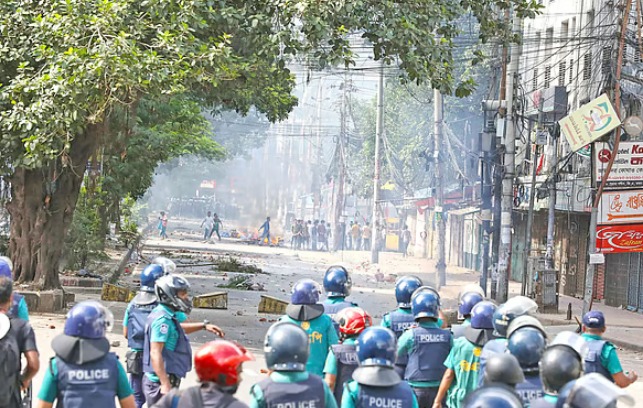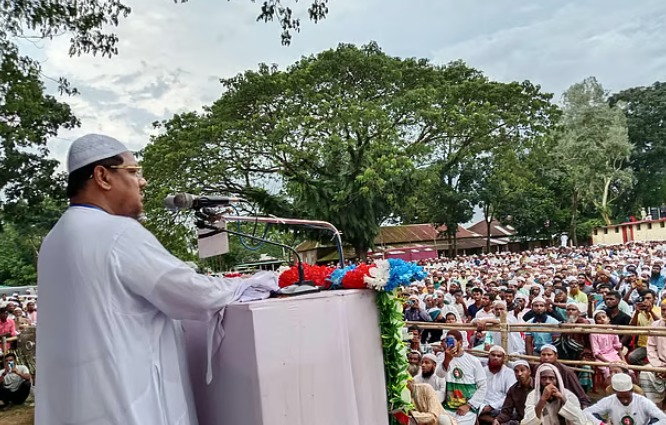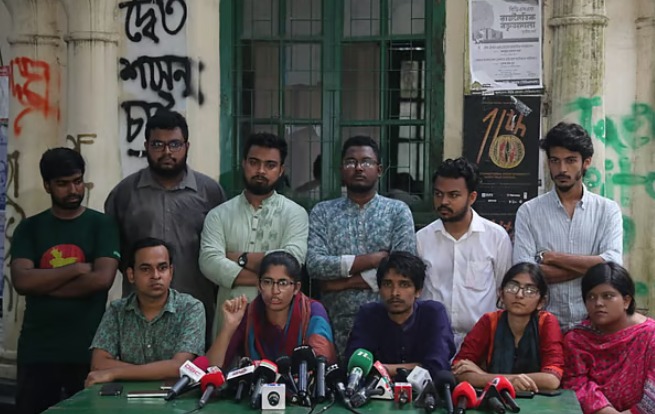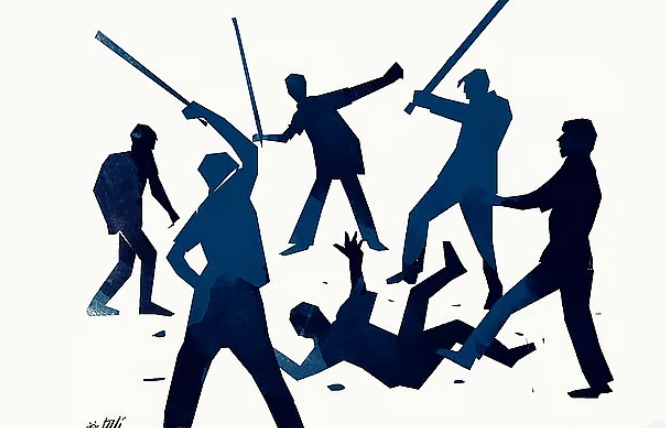Desk Report,
When the ‘good people’ were silent on July 24th
1963. Martin Luther King went to jail for leading the fight for the rights of black people in America. But he did not give up, while sitting in a Birmingham jail, he was giving directions to the civil rights movement of black people in the country. Arrests, secret surveillance were carried out across the country. Thousands of people were imprisoned. White thugs were publicly hanging black people. Black-owned businesses were being burned down.
When the ‘good people’ were silent on July 24th
At that time, eight white clergymen wrote a letter to Martin Luther King, requesting him to withdraw the movement. They requested Dr. King that instead of mass movements in this turbulent time, he should trust in the law and judicial system of the country.
Dr. King was shocked. He knew each of the eight clergymen who sent him the letter closely. They had also previously expressed moral support for the rights of black people. When the struggle has shaken the white supremacist camp, they are offering to leave the field instead of joining it. In response, Dr. King wrote his famous letter, known as the Birmingham Jail Letter. Dr. King wrote, “In this generation, we must repent not only for the poisonous words and violent actions of bad men, but also for the shameful silence of good men.”
Dr. King then condemned the “shameful silence of good men” several more times. During the Selma to Montgomery march in 1965, he wrote, “This shameful silence of good men is one of the deepest tragedies of our time.” Dr. King told those who remained silent in the face of brutality during the Vietnam War that there comes a time in our lives when we must break our silence.
In 1968, shortly before his death, Dr. King wrote, “Our misfortune is that there is no shortage of people who pretend not to see the terrible human crimes that are happening before our eyes, or who sleep soundly. Many may turn a blind eye to the truth because of ignorance. The most dangerous thing in this world is the ‘heartless ignorance and conscious stupidity’ of these people.”
Horrible barbarities and human rights violations have not been rare in our lifetime. The number of people who have known about those crimes and remained silent is not small either. The most glaring example for us is 1971. There are still many who deny that genocide, or who minimize its horror. At this moment, we can think of the genocide in Gaza. Just last week, New York Times columnist Brett Stephens wrote, “No, there is no genocide happening in Gaza.” Former President Joe Biden said the same thing. He emphasized at a Jewish event that what is happening in Gaza cannot be called genocide or mass murder in any way.
Martin Luther King called the shameful behavior of these ‘good people’ a tragedy.
I think Martin Luther King would have included those who either remained silent or defended the 15 years of Sheikh Hasina’s authoritarian government in Bangladesh, despite witnessing its rampant crimes. There is no shortage of people who still grope for other arguments to defend the fallen government. They are also members of that list. Massive human rights violations were no secret during Sheikh Hasina’s tenure. Sky-high corruption has taken place before our eyes. The law and judiciary have become instruments of state oppression. Control of the country’s banking sector has been handed over to a mafia gang. Freedom of speech has been locked down as a security threat. The entire country has been turned into the private property of one family.
The student uprising of July-August last year was a civil protest against this rampant corruption, lack of rights and mass repression. There are many intellectuals who, having witnessed the killing of students with their own eyes, not only remained silent, but also defended it.
Some have said that the death of some people—whether unjust or illegal—can be accepted in order to protect the values of the Liberation War or to prevent the rise of fundamentalism. When the July movement was at its peak, many intellectuals met Sheikh Hasina in groups and declared their allegiance. They argued that if the protesters’ demands were accepted, the country would fall into the hands of the enemy. In other words, the enemy was none other than the students who were against discrimination. The ruling class may consider the people as enemies, but when even the best intellectuals in the country say the same thing, they have to hang their heads in shame.
There are some who, despite acknowledging the incidents of killings, disappearances and murders, consider the achievements of development during Hasina’s tenure more important. Hasina herself has also said with pride that I have done so much for the country, I have made Digital Bangladesh, and yet I had to leave the country. How can these ignorant people be convinced that the price of an innocent person’s death cannot be paid even with a hundred Padma bridges?
Some of those who were silent that day are still vocal in favor of dictatorship. Their busy presence on social media, both name and anonymity. Their efforts to prove the July Revolution was a planned conspiracy are endless.
A eloquent intellectual sitting abroad has written an entire book to prove how the ‘deep state’ of America is the real driving force behind this coup. The death of the first martyr of July, Abu Sayeed, was not at the hands of the police, but at the hands of the protesters, or they are the ones who spread these rumors. It is not difficult to understand why.
The July-August Revolution was not only against Sheikh Hasina’s dictatorship, but also against those who supported and benefited from that dictatorship. Those who are now




